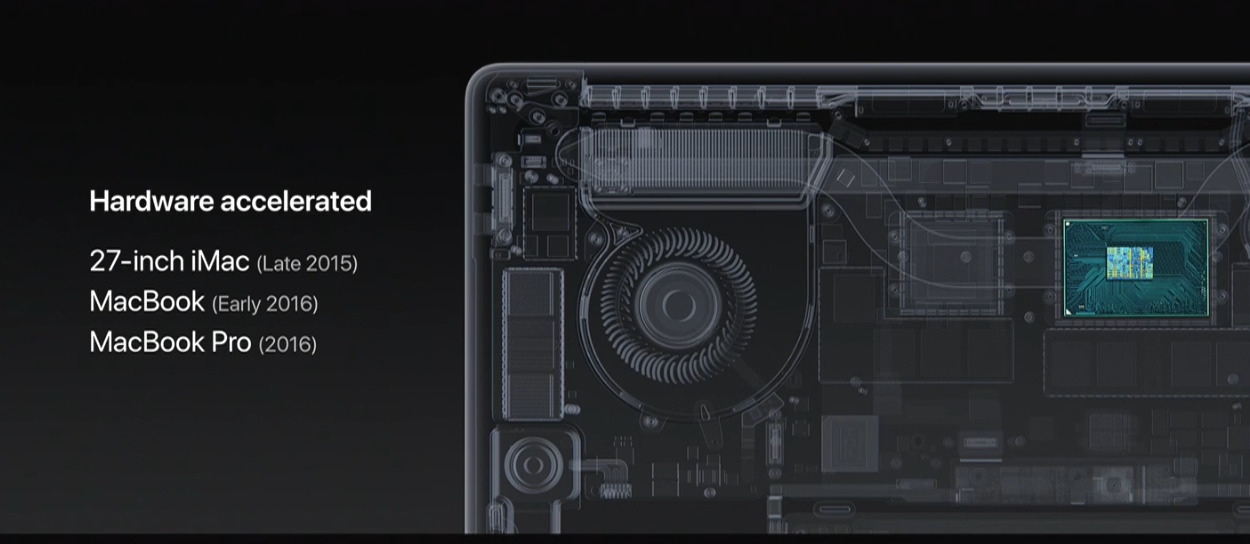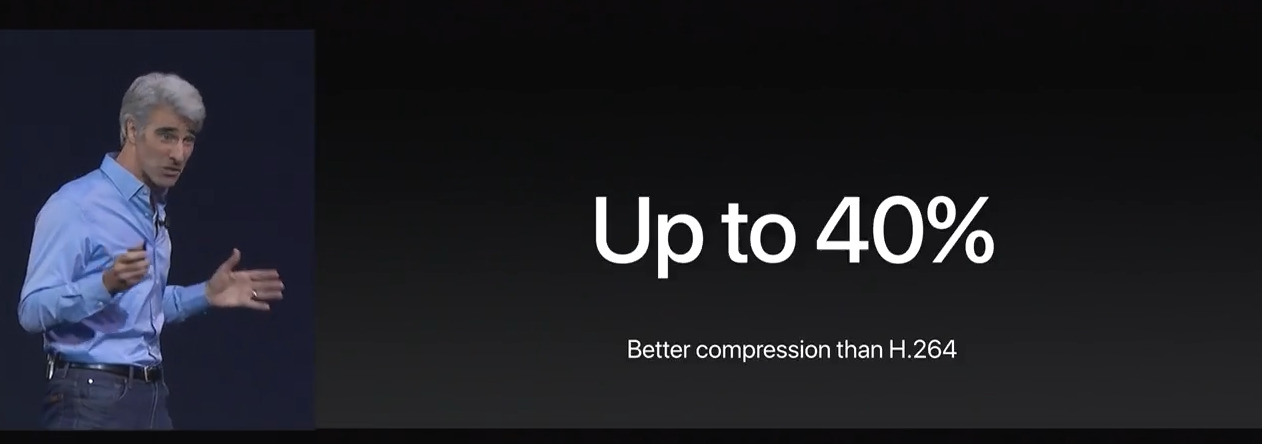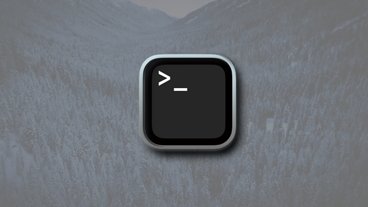Support for HEVC, also known as H.265, was announced at the WWDC Keynote by Apple Senior Vice President Craig Federighi. AppleInsider examines the technology from a user's standpoint, said to be needed to keep 4K videos down to a manageable size.
Editor's note: this examination was published shortly after the reveal of HEVC at the WWDC. It has been updated to reflect the shipment of High Sierra, iOS 11, and tvOS 11.
MPEG-4 begat H.264, which led to HEVC
Apple adopted H.264, also known as AVC in with the launch of QuickTime 7 in April 2004, with Mac OS X 10.4. Apple moved the implementation to Windows in 2005. It boosted the then-standard MPEG-4 from two years prior in much the same way that HEVC improves H.264.
The newer HEVC was born in 2012, and is an evolution of H.264. The newer codec includes better motion compensation for fast-moving scenes, larger computational errors for difference-coding, and other improvements designed to keep file sizes small, at the expense of processor power needed to encode and decode.
The inclusion of the HEVC codec is transformational, in the same way that H.264 was a decade ago.
Cutting back on the processor demand of coding and decoding HEVC video, Apple is implementing hardware acceleration of HEVC in the late 2015 27-inch iMac, the early 2016 MacBook, and the 2016 MacBook Pro and newer.
Utilities to take advantage of the hardware acceleration have started to arrive.
Motion, Final Cut, and Compressor will see hardware encoding support for HEVC at some point in the future — but a timetable for release is still not yet known. Apple's iTunes supports HEVC in High Sierra now, to some extent.
Intel's Kaby Lake processor used in the most recent range of Macs, and the AMD Radeon Pro chipset included in the 2016 MacBook Pro have HEVC decoding support. Some Nvidia GPUs such as the GTX 9 and 10 series cards do as well. Other machines will have to rely on software decoding.
Processing demands can be tested now
Inspired by a YouTube test, AppleInsider used the 42-second Universal studios pre-movie "bumper" in 1080p transferred from Blu-Ray from the opening of music and the black screen through the animation, and back to a black screen as a test bed. We then transcoded the video using H.264 and H.265 encoders in Handbrake 1.0.7, both set for 1000 kbit/sec on an 8-core, keeping file sizes and all other parameters the same.
The H.264 video clearly had more compression artifacts than the H.265 video. Plus, the movement was smoother in the HEVC video than the older codec.
Compression time was more than double on the 2012 8-core Mac Pro used for conversion. The transcoding progressed at 41 frames per second with HEVC on the average, and 94 frames per second with H.264.
Competing codecs
HEVC is not open source. As a result, there are a few codecs designed for 4K content.
Google's VP9 is used in YouTube and currently not supported in Safari or the Apple TV 4K. The Alliance for Open Media's AV1 is expected to see the light of day before the end of 2017.
It is not clear who Apple has chosen to license HEVC from — but it is likely around $25 million annually, given MPEG LA's terms for using the technology.
Apple has not declared any intention to natively support VP9, nor AV1. The lack of support is cited as a reason why 4K content will not play through a video embedded in Safari.
More than just High Sierra
To keep Apple's costs down, it needs wide support of whatever codec it can manage that will keep bandwidth demands to a minimum.
HEVC is that codec. Bringing it to iOS and macOS is only the start.
The inclusion of the HEVC codec is transformational, in the same way that H.264 was a decade ago. It will allow for the quality that Apple users demand, while meeting the needs of Apple itself, at the same time.
 Mike Wuerthele
Mike Wuerthele



-m.jpg)






 Marko Zivkovic
Marko Zivkovic

 Christine McKee
Christine McKee
 Amber Neely
Amber Neely
 Wesley Hilliard
Wesley Hilliard

 William Gallagher
William Gallagher










34 Comments
I’d like to see AI conduct that same encode test on one of their 2017 MBPs since those machines have built-in HW acceleration.
I was able to encode several HD and 4K videos on a 6 core Mac Pro using the new Quick Time app that was installed with High Sierra developer beta, the interface is slick. Once done I was able to play it back smoothly with VLC to my surprise.
Sadly, the encoding time was beyond belief (as in go out for lunch for a few seconds of video). I realize I have no dedicated hardware for encoding but I had hoped given the GPU horse power in a new Mac Pro it might have been usable, as is it's not. In FCPro X only one GPU is utilized for compression/decompressionI know, but I'd love to think Apple could allow Compressor at least to work using both in a Catalyst type scenario at least on such an ancient and underpowered 6 core Mac Pro, Xeon CPU with Dual GPUs, RAID 0 and all! OK that was sarcasm brought on my disappointment, and this is only beta 1. Fingers crossed.